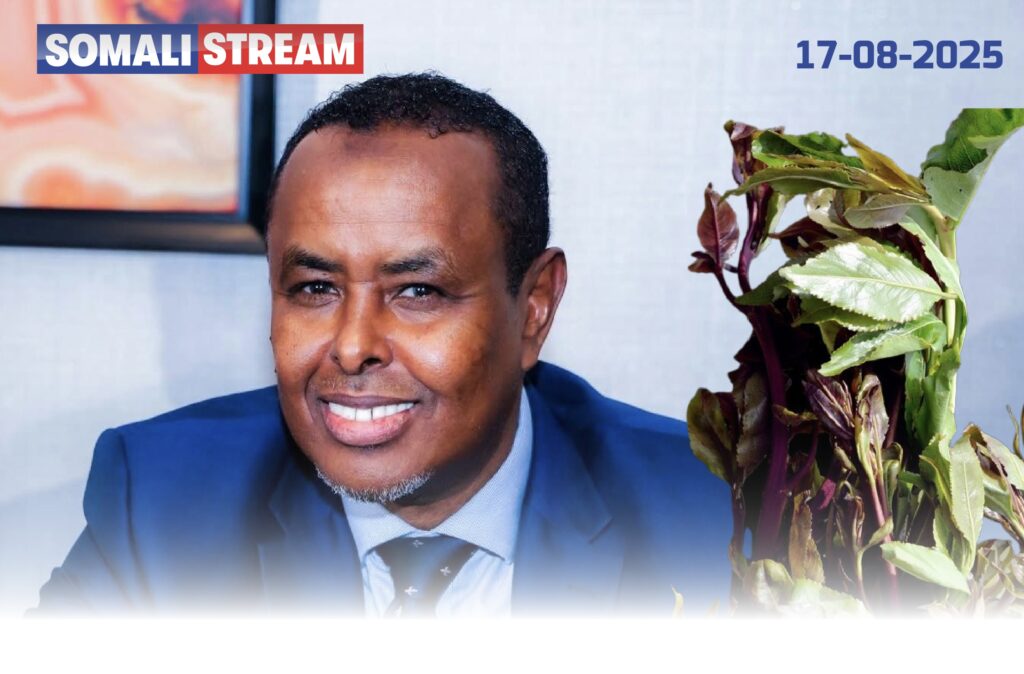By: Abukar Awale
The recent territorial and military losses of the Somali government to Al-Shabaab bring a critical question to the forefront: Is the nation’s leadership serious about winning the war on terror? The answer, unfortunately, is intertwined with a pervasive problem that undermines every aspect of Somali society: the unchecked trade and use of Khat. As is common in Somali politics, security policies are often disjointed and misaligned, serving the narrow interests of a few rather than the nation’s well-being. The Khat trade is the starkest example of this.
The economic and social costs of this substance are immense, yet the trade flourishes because a small clique of unscrupulous dealers and traders, along with those in positions of power, including the very leadership, prioritize personal gain over national security. This corrupt bargain has made a national security threat the perfect vehicle for their own economic ends.
This fundamental conflict of interest explains the gap between the government’s rhetoric and its actions against Al-Shabaab. While leaders may declare their commitment to victory, the reality on the ground is a series of half-baked, ineffective policies.
This is because the core leadership has either failed to grasp or has wilfully ignored the tools and actions necessary to defeat terrorism, with the khat trade being the most significant blind spot.
The most damning evidence lies within the military itself. Senior army officials have confirmed that khat use is rampant at military bases, leaving soldiers vulnerable and unprepared. The substance compromises the readiness of our forces and undermines the strict discipline essential for military efficiency.
Mostly, soldiers under the influence of khat have been caught off-guard, leading to devastating losses during night-time ambushes by terrorists. The battle for Adan Yabaal, where nearly 200 soldiers were lost in a single night raid, serves as a grim testament to the high price we are paying.
Khat is not just a cultural phenomenon; it is a clear and present danger to our national security and the lives of the brave men and women who fight to protect our country. It is a societal threat that has no place in our military. The real question, then, is whether the Somali government can ever hope to defeat terrorism when its own leadership is undermining the readiness of our army by economically benefiting from its demise.
We can receive all the international support and advanced weaponry in the world, but as long as our leaders lack the foresight to address this fundamental weakness—or, worse, actively contribute to it—every ounce of support is a waste. The continued dominance of the khat trade signals a profound lack of seriousness that erodes international confidence in Somalia’s commitment to its own future.
Abukar Awale, also known as “Qaadiid,” is a Somali anti-khat activist based in London. The views expressed in this article are solely those of the author and do not necessarily reflect the opinions of Somali Stream.


